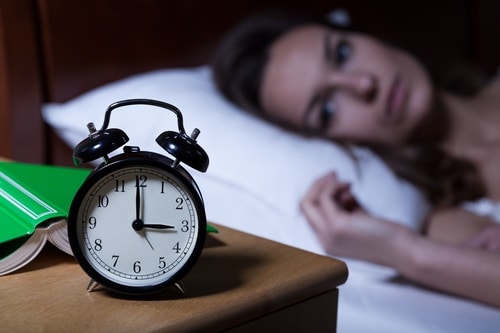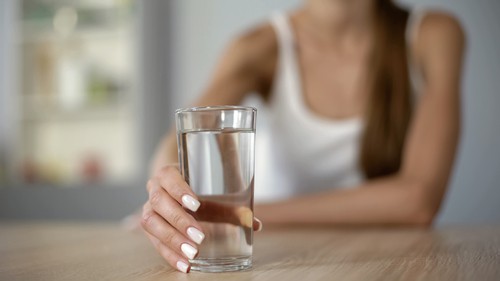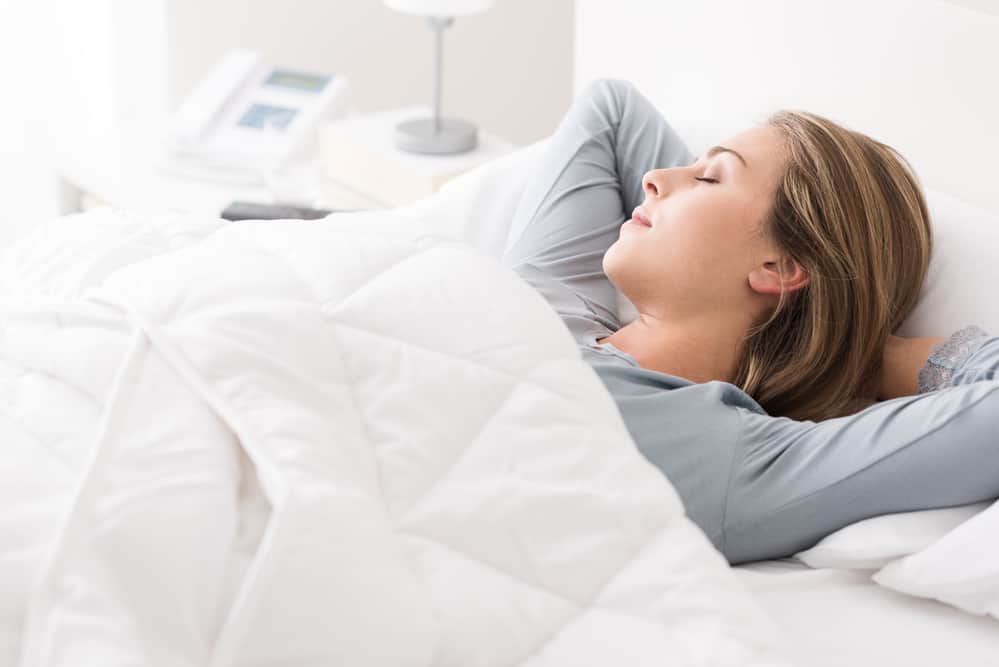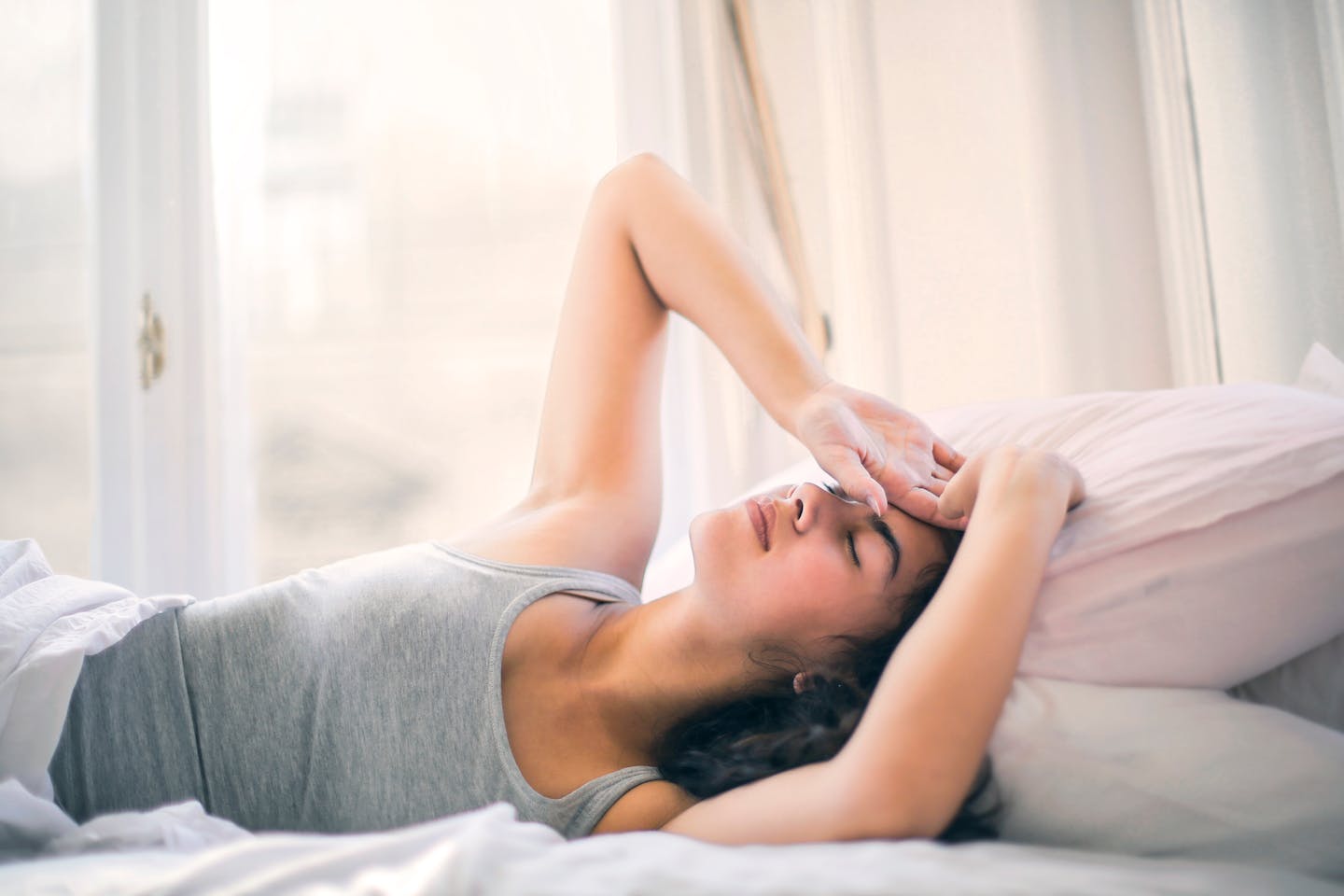Chronic Fatigue Syndrome? – Probably Not
Being tired all the time does not necessarily mean you have chronic fatigue syndrome. Tiredness is a symptom of a lot of things, such as anaemia, diabetes and glandular fever as well as many other quite serious illnesses. However, it is also a symptom of other less complex conditions that are simple to cure with lifestyle changes.
When you feel tired you have little motivation or energy. You may feel exhausted after mental and physical exertion and need to rest. This type of exhaustion can last for a couple of days and is normal. But if your exhaustion lasts longer you might be asking ‘what causes feeling tired all the time, could I have chronic fatigue syndrome”?
The main symptom of chronic fatigue syndrome is extreme exhaustion which is more than feeling tired. It is the type of tiredness and fatigue that interferes with your daily life for six months or more. And it stops you from doing the normal physical activities you normally do.
Chronic fatigue syndrome is where you can sleep eight hours a night and wake up still feeling as tired as you did before your sleep. Where the simple act of brushing your teeth is too much effort and the thought of standing up to shower takes way too much effort.
If chronic fatigue syndrome is not the cause of your tiredness there are many other less complicated reasons for your tiredness. Here are 10 things that can make you tired that aren’t chronic fatigue syndrome. Check them out and see if some simple changes to your lifestyle can make a difference.
1. Not Eating Enough Or Eating Empty Calories
Eating a poor diet does not provide the fuel you need to function. When you do not have the fuel to function properly, you will feel tired. Look at your diet and consider how balanced it is. How often do you eat junk food? What about fresh fruit and vegetables? Does your normal diet give you the energy you need to get through the day? Simply put, eating well makes you not only look better but feel better too.
Fast food and caffeinated drinks are quick fix foods that only give a temporary energy boost. You crash when the sugar hit wears off. These foods are a poor diet choice as they do not provide your body with all the nutrients it needs.
Choose healthy foods. Have fun cooking creative dishes you enjoy. Use fresh ingredients and eat a balance from across the five food groups to eliminate tiredness. Change your diet by making a few small changes, such as:
- Eating the right number of calories for your activity level, age, sex and weight.
- Cutting down on sugar or better yet cut it out completely.
- Eating at regular intervals throughout the day.
- Eating plenty fresh vegetables and fruit.
- Not skipping breakfast – you need the nutrients to kick start the day.
In an effort to keep your weight under control, you may inadvertently be reducing your calorie intake too much. Getting the right amount of calories to fuel your body gives you the energy to get through your busy day. Eating sufficient calories and eating well from quality food choices keeps tiredness away.
2. Not Getting Enough Quality Sleep
While lack of sleep may seem an obvious reason for tiredness, you may not be getting enough. Adults need at least seven hours a night. How many hours a night do you get?
Too much sleep can make you more tired too. Sleeping for more than 11 hours can leave you tired during the day.
Another culprit for not getting enough sleep is disturbances through the night. The neighbour’s dog barking, children waking at night, an uncomfortable bedroom, a partner who snores. Broken sleep means your brain is not getting into a deep sleep necessary for restorative sleep.

Many things are out of your direct control when it comes to getting a good night’s sleep. But if you have good habits for sleeping it will help. Things like:
- A regular sleep routine where you go to bed and get up at the same time every day.
- No napping during the day, as it can make it hard to sleep that night.
- Make sure your bedroom is sufficiently dark and is a comfortable place to sleep in.
- Make your bedroom a no-go zone for digital and electronic devices, remove the TV from here.
- Ditch caffeinated drinks completely as caffeine is a stimulant.
- Avoid alcohol too close to bedtime.
There are also some useful gadgets that help you not only drop off to sleep, but help you stay asleep too. If you sleep well every night and still wake up tired, it may be a good idea to visit your doctor for a check-up.
3. Food Sensitivities
Allergies and sensitivities to different foods can make you tired or increase tiredness. There may be some foods your system cannot tolerate. When you keep eating food you are sensitive to, your adrenals work overtime to produce cortisol. Cortisol is one of the body’s main anti-inflammatory hormones. Your adrenals will soon become overused and depleted, and cause extreme tiredness.
Food sensitivities can cause the intestinal tract lining to inflame and make it difficult to absorb nutrients like antioxidants. Other symptoms of food allergies include abdominal pain, bloating, gas and diarrhea.
Deal with food allergies as soon as possible by carrying out food sensitivity testing. Take note of how you feel after eating specific foods. Eliminate any food from your diet that makes you sleepy. An elimination diet is best carried out under the supervision of your health care practitioner.
This is quite simple to do. Work out what you have eaten before you felt tired. Start by leaving these foods out of your diet. Then reintroduce them one at a time to find out which one tends to put you to sleep.
4. Not Staying Adequately Hydrated
Tiredness can be a sign of dehydration. No matter what you do each day, you need water to keep your body cool and help it stay hydrated. By the time you are thirsty, it is too late. You are already dehydrated.
Your blood pressure drops when dehydrated. This decreases the blood flow to the brain making you feel tired.

You can also tell whether you are dehydrated or not by the colour of your urine. It will be darker when dehydrated. This is a sign to drink more liquid. It is normally clear or light coloured when you are adequately hydrated.
The commonly recommended amount of water is eight glasses of water a day. And while you can drink any type of liquid, plain room temperature water is the best. Using a healthy reusable water bottle you can refill and carry with you is a good way to make sure you stay hydrated throughout the day.
5. Too Much Stress
Stress can be a common factor in our lives these days. Relationship issues, work, financial problems, major changes such as unemployment and moving house are just a few of the everyday stresses you may face.
Some stress is healthy. It helps you meet impossible deadlines and study for exams but it is only short-lived. Stressing out every day can lead to extreme tiredness, emotional exhaustion and possible illness.
Stress leaves you feeling on edge. It triggers the fight or flight chemicals that prepare you to respond to an emergency. But these days we do not respond with fight or flight responses as the environment does not allow it. For example, you can hardly argue or run away from what stresses you out in the workplace.
If you are under constant stress that causes you to feel over tired, have migraines or constant headaches, take steps to reduce the stress in your life. While you work on reducing the main stressors in your life, use some stress reduction techniques to help you cope each day.
Adding a simple yoga practise into your day, or a short meditation session can help. Even a simple walking meditation can shift your mind from focusing on things that are bothering you. Taking time out from your busy day to do nothing and simply resting your mind and body can provide big benefits.
6. Eating A Diet Of Too Many Refined Carbs
Getting enough sleep is important for preventing tiredness, your diet plays a part in keeping you alert as well. While your body gets its energy from carbohydrates, they can also work against you. It can make you sleepy after you eat.
Your system breaks down the carbohydrates and they enter your bloodstream. The pancreas produces insulin so your cells can absorb the sugar. Your body responds by producing glucagon to help control blood sugar and energy levels.
When you consume too many refined carbohydrates, you get a rapid spike from the sugar hit. Then your sugar levels plummet leaving you feeling groggy. Ever just wanted to close your eyes and have a snooze after that lunch of white rice and veggies?

Carbohydrates are what your brain uses to produce serotonin which is the chemical that makes you feel good. It also produces tryptophan which is the chemical that makes you sleepy. After a large carb laden meal, you can feel good, satisfied and unfortunately very sleepy.
Try the following changes for more energy:
- Cut out refined carbs like white flour products, white rice and noodles and swap to whole grain equivalents.
- Stop eating sugar laden cereals, cakes, confectionery and fizzy drinks.
- Reduce fast food consumption or better yet don’t eat it at all.
7. Living A Sedentary Lifestyle
Living a sedentary lifestyle is tiring. Being inactive does nothing to boost energy levels. Sitting on the couch when tired may not be the answer. The best way to re-energise is to get up and move around. Start off slowly and build up the amount of exercise you can do at a time.
Start with things like a gentle walk in the park and build it up from there to get an energy boost. Getting more exercise can keep your tiredness away and you get fit at the same time.
Start with gentle exercise if you have not exercised for a while. Gradually build up the intensity and duration of exercise as your fitness levels rise.
Try getting up half an hour earlier and go for a walk each day. Try some slow laps in the pool, or a short bike ride. A beginner yoga class is also a great way to move your body gently if you haven’t exercised for a while. It helps move your circulation and gets the lymph fluid moving too.
8. Your Gadgets – How Blue Light From Screens Makes You Tired
The blue light emitting from your electronic and handheld devices can make you tired. Televisions, tablets, computers and phones all suppress your body from making melatonin. This is the hormone that regulates your body clock. Low levels of melatonin make it more difficult to fall asleep and stay asleep.

A study shows the negative effect blue light has on the body’s circadian rhythms, leading to poor sleep quality.
For a good night’s sleep put those electronic devices away at least a couple of hours before going to bed. This will help you get a good night’s, uninterrupted sleep.
9. Low Vitamin D Levels
When you have trouble sleeping at night and are tired all day, a lack of vitamin D could be the culprit. Low vitamin D levels are not always looked at as a cause of persistent tiredness. Not having enough vitamin D can also increase the risk of obstructive sleep apnoea. This wakes you several times time throughout the night.
There are many studies linking low vitamin D levels to feeling tired. Other symptoms of vitamin D deficiency include depression, muscle pain, aching bones and high blood pressure. Studies show that people with low vitamin D levels in their system were tired but taking a vitamin D supplement will resolve the symptoms.
Low vitamin D levels are more common than you may think which is due to a couple of reasons. We all live indoor lifestyles and are encouraged to cover up and use sunscreen when outdoors. The end result is that we are not getting enough natural vitamin D made from sunlight on our skin.
A simple blood test will measure the vitamin D levels in your system. It is easy to supplement with vitamin D, however you need to practice patience as it can take a couple of months for supplementation to build to optimal levels in your blood before you start to feel the benefits.
10. Low Iron Levels
Feeling tired can b� a sign of an iron deficiency. Your body uses iron to produce hemoglobin which carries oxygen around your body in your red blood cells. If you do not have enough hemoglobin there is less oxygen getting to your muscles and tissues. Your heart has to work harder to move blood around your body. This can make you tired.
In our busy lives we are often tired all the time so it is difficult to diagnose an iron deficiency from just feeling tired. With an iron deficiency you can also experience poor productivity at work, falling hair, feel irritable and weak, lack energy or have difficulty concentrating.
Some common reasons for low iron levels include not getting adequate iron from your diet and in women, heavy menstrual periods. Particularly women who reach peri-menopause and start to experience changing hormone levels with heavier periods can find themselves low in iron.
Fortunately, low iron levels are easy to fix with adjustments to diet. Eat more red meat, liver, poultry, eggs and fish. Good plant sources include spinach broccoli and silverbeet. And a good quality iron supplement can also be helpful.
Putting It All Together
There are many reasons for feeling extremely tired all the time. It is always best to visit your health practitioner if tiredness persists. But it does not always mean you have chronic fatigue syndrome. Many causes of tiredness can be as simple as making a few adjustments to your lifestyle choices which will soon have you feeling better and way more energetic.
As always, please feel free to leave a comment.




